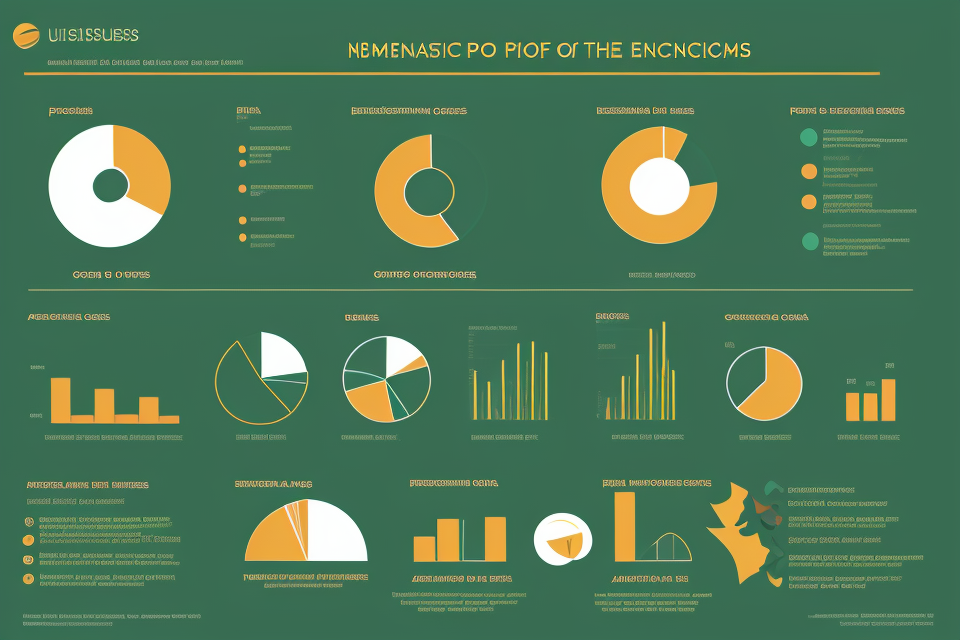Golf courses that host PGA events are often seen as prestigious and well-regarded within the golfing community. However, it’s not always clear whether these courses receive payment for hosting these events. In this article, we’ll explore the economics of hosting PGA events and examine whether golf courses receive payment for their services. We’ll delve into the details of what it takes to host a PGA event, the costs involved, and the potential benefits for both the course and the PGA. Whether you’re a golf enthusiast or simply curious about the business side of professional golf, this article will provide you with valuable insights into the world of PGA events and the role of golf courses in hosting them.
Hosting a Professional Golf Association (PGA) event can be a lucrative opportunity for golf courses, but it also comes with significant costs. The economic benefits of hosting a PGA event can vary depending on factors such as the size of the event, the number of spectators, and the amount of money generated from ticket sales, sponsorships, and other sources. While some golf courses receive a direct payment from the PGA for hosting an event, others may not receive any payment at all. In general, hosting a PGA event can provide a boost to the local economy, but it requires a significant investment in time, resources, and money.
Understanding PGA Events and Their Impact on Golf Courses
The Significance of Hosting PGA Tournaments
- Attracting Media Attention
Hosting a PGA event can be a significant boon for a golf course’s visibility and reputation. The media attention generated by these events can help raise the profile of the course and attract new customers. In addition to traditional media outlets, such as newspapers and television stations, social media has become an increasingly important platform for golf courses to showcase their events and facilities. The exposure can lead to increased interest in the course and may even lead to partnerships with golf-related businesses.
- Boosting Local Economy
Hosting a PGA event can have a positive impact on the local economy. The event can attract visitors from outside the area, who will stay in hotels, eat in restaurants, and shop in local stores. This influx of visitors can provide a boost to the local economy, especially if the event is held during a slow period. Additionally, the event can create jobs and generate revenue for local businesses, which can help sustain the local economy in the long term.
- Enhancing Golf Course Reputation
Hosting a PGA event can enhance a golf course’s reputation, both locally and nationally. The event can help position the course as a top destination for golfers, which can lead to increased business and higher revenue. The prestige of hosting a PGA event can also enhance the course’s reputation among golfers and golf enthusiasts, which can lead to increased interest in the course and may even lead to partnerships with golf-related businesses.
Economic Benefits for Golf Courses
Increased Revenue
Hosting a PGA event can be a significant source of increased revenue for golf courses. This revenue can come from a variety of sources, including ticket sales, corporate sponsorships, and merchandise sales. Additionally, hosting a PGA event can increase the visibility and reputation of the golf course, which can lead to more frequent bookings and higher green fees.
Improved Course Conditions
Hosting a PGA event can also lead to improved course conditions for the golf course. In order to host a PGA event, the golf course must meet certain standards set by the PGA. This can include upgrading facilities, improving turf and drainage, and making other course improvements. These improvements can be costly, but they can also result in a better golfing experience for regular customers, which can increase loyalty and repeat business.
Job Creation
Hosting a PGA event can also create job opportunities for the golf course and the surrounding community. This can include jobs in event management, security, hospitality, and other areas. Additionally, the increased exposure and publicity that comes with hosting a PGA event can lead to more job opportunities in the long term.
Overall, hosting a PGA event can bring a range of economic benefits to golf courses, including increased revenue, improved course conditions, and job creation. These benefits can have a lasting impact on the golf course and the surrounding community, making it a valuable opportunity for golf courses looking to grow their business and attract new customers.
The Cost of Hosting PGA Events
Course Preparation
Hosting a PGA event requires extensive course preparation, which can be both time-consuming and costly. Golf courses must undergo significant changes to meet the requirements of PGA tournaments. This includes altering the layout of the course, installing new equipment, and improving the quality of the turf. The cost of course preparation can vary depending on the size of the course and the extent of the changes required. On average, golf courses can spend anywhere from $500,000 to $2 million on course preparation for a PGA event.
Security and Safety Measures
In addition to course preparation, golf courses must also invest in security and safety measures to ensure the safety of players, spectators, and staff during the event. This includes hiring additional security personnel, installing surveillance equipment, and creating emergency response plans. The cost of security and safety measures can vary depending on the size of the event and the level of risk involved. On average, golf courses can spend anywhere from $100,000 to $500,000 on security and safety measures for a PGA event.
Hospitality and Transportation
Hosting a PGA event also requires significant investment in hospitality and transportation. Golf courses must provide accommodations for players, staff, and media, as well as transportation to and from the course. This can include chartering buses, renting hotels, and providing meals and refreshments. The cost of hospitality and transportation can vary depending on the size of the event and the number of people involved. On average, golf courses can spend anywhere from $200,000 to $1 million on hospitality and transportation for a PGA event.
Overall, hosting a PGA event can be a significant financial investment for golf courses. While the potential benefits of hosting a major tournament can be substantial, golf courses must carefully consider the costs and potential risks involved before committing to a PGA event.
How Golf Courses Get Paid to Host PGA Events
Sponsorship Deals and Revenue Sharing
Title Sponsorship
Title sponsorship is a type of sponsorship deal in which a company pays a substantial fee to have its name featured prominently in the event’s title. For example, the Waste Management Phoenix Open is sponsored by Waste Management, Inc., and the tournament is officially known as the Waste Management Phoenix Open. This type of sponsorship provides the golf course with a significant revenue stream that can help offset the costs of hosting the event.
Tournament Presenting Sponsorship
Tournament presenting sponsorship is another type of sponsorship deal in which a company pays a substantial fee to have its name featured prominently in the event’s marketing and promotional materials. The presenting sponsor’s name is often featured in the event’s logo, and the sponsor may also have a prominent presence on the tournament’s website and social media channels. This type of sponsorship can provide the golf course with a significant revenue stream, and it can also help increase the exposure and visibility of the event.
Local Sponsorship
Local sponsorship is a type of sponsorship deal in which a company pays a fee to have its name featured in the event’s local marketing and promotional materials. This type of sponsorship can provide the golf course with a significant revenue stream, and it can also help increase the exposure and visibility of the event in the local community. Local sponsors may also have the opportunity to set up branded activations or displays on the golf course during the event, which can further increase their visibility and engagement with fans.
Ticket Sales and Concessions
Golf courses can generate revenue by selling tickets to PGA events and by earning profits from concession sales. The amount of revenue generated from ticket sales and concessions can vary depending on factors such as the popularity of the event, the size of the crowd, and the type of concessions offered.
- Ticket Revenue:
- One of the primary sources of revenue for golf courses is ticket sales. The revenue generated from ticket sales depends on the number of attendees and the price of the tickets. PGA events typically offer various ticket options, including general admission, VIP packages, and premium seating options.
- The pricing of tickets is determined by the organizers of the event and is based on several factors, including the demand for the event, the reputation of the golf course, and the cost of staging the event.
- Golf courses may also earn additional revenue from ticket sales by offering packages that include food, beverages, and merchandise.
- Concession Sales:
- Concession sales are another source of revenue for golf courses that host PGA events. Concessions may include food, beverages, and merchandise sold to attendees during the event.
- Golf courses may earn a percentage of the revenue generated from concession sales or may receive a flat fee for allowing concession vendors on the premises.
- The type of concessions offered can also impact the revenue generated. Golf courses may choose to offer a variety of food options, such as hot dogs, hamburgers, and sandwiches, as well as specialty items like gourmet burgers and craft beers.
- In addition to food and beverage sales, golf courses may also earn revenue from the sale of merchandise, such as golf balls, apparel, and souvenirs.
Overall, ticket sales and concession sales can be significant sources of revenue for golf courses that host PGA events. However, the amount of revenue generated will depend on various factors, including the popularity of the event, the size of the crowd, and the types of concessions offered.
Merchandise Sales
One of the primary ways that golf courses generate revenue from hosting PGA events is through merchandise sales. This can include a wide range of products, such as apparel and accessories, as well as souvenirs and collectibles.
Apparel and Accessories
Apparel and accessories are a popular category of merchandise sold at PGA events. These can include items such as golf shirts, hats, and bags, all bearing the logo or branding of the event or course. In some cases, players may also have their own line of merchandise, which can be sold to fans and collectors.
Souvenirs and Collectibles
Souvenirs and collectibles are another category of merchandise that can be sold at PGA events. These can include items such as golf balls, scorecards, and other memorabilia related to the event or course. Some of these items may be highly sought after by collectors, and can fetch a premium price.
In addition to the revenue generated from direct sales of merchandise, hosting a PGA event can also increase the profile and visibility of the golf course, which can lead to increased business from golfers and other customers in the long term. This can be a significant factor in the decision of golf courses to invest in hosting PGA events, as it can provide a valuable boost to their bottom line over the long term.
Other Sources of Income
When it comes to making money from hosting PGA events, golf courses have a few different options. One way they can generate income is by selling hospitality packages to fans who want to experience the event in style. These packages can include things like VIP access, exclusive seating areas, and catered meals. Another way golf courses can make money is by selling advertising and promotional space on their course or in their stadium. This can include banners, billboards, and other signage that companies can use to promote their products or services. Additionally, some golf courses may also make money by charging for parking or by selling merchandise related to the event. Overall, hosting a PGA event can be a lucrative opportunity for golf courses, as they have multiple ways to generate income beyond just the prize money.
The Catch: Financial Risks and Challenges for Golf Courses
Infrastructure and Maintenance Costs
When a golf course is selected to host a PGA event, it may be required to make significant investments in upgrading its facilities. These upgrades can be expensive and may not be fully covered by the revenue generated from the event.
Post-event maintenance is another factor that must be considered. After the PGA event has taken place, the golf course may need to make additional repairs and upgrades to ensure that the course is returned to its original condition. This post-event maintenance can be costly and may not be covered by the revenue generated from the event.
Additionally, there may be ongoing maintenance costs associated with hosting PGA events. For example, the golf course may need to invest in additional equipment or staff to support the event, or it may need to allocate resources to manage the increased traffic and demand for the course during the event.
Overall, golf courses must carefully consider the infrastructure and maintenance costs associated with hosting PGA events, as these costs can have a significant impact on the course’s bottom line.
Uncertainty of Attendance and Revenue
Weather Conditions
One of the primary factors that can affect the attendance and revenue of a PGA event is the weather. Golf tournaments are often held outdoors, and inclement weather can discourage spectators from attending. Extreme heat, rain, or wind can make the event uncomfortable for spectators, leading to a decrease in attendance and revenue. Additionally, severe weather conditions may cause delays or cancellations, which can further impact the revenue of the golf course.
Economic Factors
Another factor that can impact the attendance and revenue of a PGA event is economic factors. Economic downturns, such as recessions, can lead to a decrease in disposable income for potential spectators, making it more difficult for them to attend the event. Furthermore, high ticket prices and other expenses associated with attending the event, such as transportation and accommodation, can also deter potential spectators from attending.
Competition with Other Events
Finally, competition with other events can also impact the attendance and revenue of a PGA event. Golf courses may face competition from other sporting events, concerts, or festivals taking place around the same time. Potential spectators may choose to attend these other events instead, leading to a decrease in attendance and revenue for the golf course. Furthermore, if the golf course is located in a popular tourist destination, it may face competition from other attractions and activities that visitors may choose to do instead of attending the PGA event.
Negative Impact on Course Conditions
- Overuse and Wear and Tear
- Golf courses typically experience an increase in the number of rounds played during PGA events, leading to overuse of the greens, fairways, and roughs. This excessive use can result in the deterioration of the course’s playing conditions, with increased wear and tear on the turf, bunkers, and other infrastructure.
- In addition to the physical strain on the course, the heavy traffic and constant play during PGA events can also lead to damage to the course’s natural features, such as trees, landscaping, and wildlife habitats.
- Environmental Concerns
- Hosting PGA events can also raise environmental concerns for golf courses, particularly in terms of water usage and the potential for pollution. The maintenance of the course requires a significant amount of water, which can be a valuable resource in areas with water scarcity.
- Moreover, the use of pesticides, fertilizers, and other chemicals to maintain the course’s playing conditions can have adverse effects on the local ecosystem, potentially contaminating nearby water sources and harming wildlife.
- Additionally, the increased traffic and energy consumption associated with hosting a PGA event can contribute to greenhouse gas emissions and climate change, which can have long-term impacts on the environment and the course’s sustainability.
FAQs
1. Do golf courses get paid to host PGA events?
Answer:
Golf courses typically do not get paid to host PGA events. Instead, they may receive compensation in the form of fees or other financial arrangements. These fees can vary depending on the size and prestige of the event, as well as the specific terms negotiated between the golf course and the PGA. Additionally, hosting a PGA event can bring significant exposure and prestige to the golf course, which can be valuable in attracting new customers and increasing revenue.
2. How are fees for hosting PGA events determined?
Fees for hosting PGA events are typically determined through negotiations between the golf course and the PGA. Factors that may influence the fee include the size and prestige of the event, the amount of resources required to host the event, and the potential economic impact of the event on the local community. Additionally, the PGA may consider the reputation and track record of the golf course in hosting successful events when determining the fee.
3. What are the benefits of hosting a PGA event for a golf course?
Hosting a PGA event can bring a number of benefits to a golf course. These can include increased exposure and visibility, as well as the opportunity to showcase the course to a wider audience. Additionally, hosting a PGA event can help to attract new customers and increase revenue, as golfers may be interested in playing the course after seeing it host a high-profile event. Finally, hosting a PGA event can help to enhance the reputation of the golf course, potentially leading to additional opportunities for hosting future events.
4. Are there any risks associated with hosting a PGA event for a golf course?
Hosting a PGA event can also come with some risks for a golf course. These can include the potential for damage to the course or equipment, as well as the need to invest significant resources in preparing for the event. Additionally, if the event is not successful or does not attract a sufficient number of attendees, the golf course may not see the desired economic benefits. As such, it is important for golf courses to carefully consider the potential risks and benefits before committing to host a PGA event.









